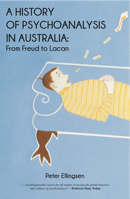“How are you feeling?, or even the simple ‘How are you?”- are greetings clothed in an inquiry – curiousity about the other – but also an invitation to speak. We offer the same invitation to patients. ‘Say whatever it is that comes into your mind, don’t censor what you say’. We don’t mention feelings – […]

The Unforeseen and unclassifiable in Psychoanalysis
Unforseen is, of course, a staple of analysis, and a welcome one at that. We don’t aspire to a forensic model of treatment, nor uniformity in either diagnosis, or analytic orientation and unfolding. Psychoanalysis starts from the position that there is no precise cure, but that we need different ways of living with ourselves, and […]

The impossible in Psychoanalysis
In psychoanalysis, we are dealing with the unforseen-whether it is on the side of the patient or the analyst. And much of what we find, and what we are, is unclassifiable – not that it has no status or context within a praxis – a conceptual and practical model, of the human subject – it […]

THE SPEAKING BODY: THE PSYCHOANALYSIS OF GRAHAM GREENE
It is not possible to write well without reading. Reading is how writing is born – not because reading has to inform or provide information, but because it is in reading that the loose threads of what we wish to say emerge. The reading I have in mind is literary fiction, that is, language, which […]

The Poetry of Psychoanalysis
Psychoanalysis cannot be taught but it can be transmitted: Which is to say that knowledge can be imparted by means other than pedagogy. What is this other means, and what is the knowledge? This is, in some ways a trick question, as the two can be considered different sides of the same coin, as both […]

Ever tried. Ever failed. No matter. Try again. Fail again. Fail better
Ever tried. Ever failed. No matter. Try again. Fail again. Fail better. Samuel Beckett All success is due to failure, and all advances in knowledge come about as a result of failed attempts. This is the reality of achievement. It is a truth that, once grasped, frees us to experiment and innovate –to discover, rather […]

Men and the art of Motorcycles
I n 1948, Albert Camus wrote to his publisher Blanche Knopf asking if the sales of his novel, The Outsider, were as good as the reviews because “ je voudrais m’acheter une motocyclette” — he wanted to buy a motorcycle. He was not the first writer to be captured by the lure of two wheels. […]

Know Hope or Know yourself
What is the best we can expect? Is it, as graffiti on a bridge over the Yarra advises: to “Know hope”, or is it to put hope aside and know where we actually are? I pose these two as alternatives because that is how they seem to me. Perhaps it is my quirkiness: But I […]

The past that haunts us
In Milan Kundera’s The Book of Laughter and Forgetting, inconvenient truths are dealt with by erasure. It is a crude but effective measure and means that politicians out of favour are painted from the pictorial record. I witnessed something similar after the Tiananmen Massacre in Beijing when China’s rulers turned what had been a pro-democracy […]

Literary sources of diagnosis
On the eve of the publication of the latest installment of the psychiatric bible, the Diagnostic and Statistical Manual of Mental Disorders (DSM), let me propose an alternative. No, not the ICD, International Classification of Mental and Behavioural Disorders, but rather what actor Hugh Grant told an American TV when badgered to ‘get counselling’. Grant’s […]
